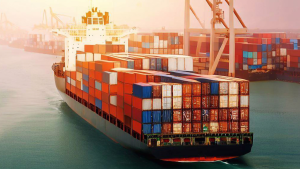ILA and USMX Pending Strike and Its Potential Impact

A looming strike between the International Longshoreman Association (ILA) and the United States Maritime Association, Ltd. (USMX) could significantly disrupt the U.S. maritime industry as the existing contract nears its September 30th expiration. This would mark the ILA’s first strike in nearly half a century, set to begin on October 1st when the collective bargaining agreement covering 45,000 dockworkers is scheduled to expire. Talks to negotiate a new Master Contract have stalled, with challenges in arranging a meeting with the ILA putting the discussions on hold. Marine Structures is here to answer some of your questions on what this could mean for you, your project, and your business.
The USMX has received outreach from the Department of Labor, the Federal Mediation and Conciliation Service (FMCS), and other federal agencies as the impending strike deadline approaches. Having successfully worked with FMCS in the past, USMX remains open to mediation efforts once again, provided the ILA agrees to participate. USMX’s primary goal is to negotiate a new agreement and avoid a disruptive strike, ensuring continued stability in maritime operations. They are actively sharing updates on their website to keep the public and stakeholders informed throughout the process.
A potential strike between the ILA and USMX could have far-reaching impacts on the U.S. supply chain. Cargo movement would face significant delays, leading to increased costs for businesses as they grapple with logistical challenges and alternative shipping routes. If the strike extends for a longer duration, it could result in container shortages and disruptions in overall operational efficiency. Companies dependent on timely shipments could see further bottlenecks, adding to the strain on an already sensitive supply chain. Ports and terminals along the entire U.S. East and Gulf Coasts operate under the ILA Master Labor Agreement, meaning a labor disruption would affect all associated operations. This includes cargo handling, terminal services, and connectivity via rail and trucking, leading to widespread delays in the movement of goods.
MTS Logistics is actively exploring alternative options for cargo acceptance and routing by trade. They encourage customers to discuss specific alternatives with their local MTS representatives. To minimize potential disruptions, MTS is working closely with customers to expedite bookings on earlier vessels where feasible and prioritize the movement of import containers from terminals. For import cargo, MTS suggests expediting the preparation of import documentation and customs clearance to avoid delays. If a strike occurs, any cargo left at the terminal will be inaccessible until operations resume. They are advising customers to prioritize moving equipment before October 1st, as many terminals, including the Port of New York and New Jersey, are offering extended gate hours to manage the demand. Maher Terminals has also announced trucking operations will extend two hours later until October 1st.
For Demurrage & Detention, carriers will pause the free-time clock for containers in their free-time period at the start of the strike, resuming it once the strike concludes. Containers already in demurrage will incur charges based on terminal operator policies, while detention charges may be suspended during the strike, though this needs to be confirmed with carriers and terminal operators. Refrigerated containers left at the terminal will have electricity and monitoring charges billed to the cargo owner. In the case of an industrial action, strike-affected days and adjacent weekends will be classified as “shut out,” and will not count toward Demurrage & Detention fees.
For Import Demurrage & Storage, if the port is closed, you will be unable to pick up discharged import containers, but most carriers and terminals will not charge storage fees for those days. If the port is open, containers must be collected within the free time, or Import Demurrage charges will apply.
For Import Detention, if the port is closed, containers cannot be returned, and most carriers will not charge Import Detention for those days. However, empty containers may still be accepted at inland or near-dock depots. If the port is open, containers should be returned within the free time to avoid Import Detention fees.
For Export Demurrage & Storage, if the port is closed, demurrage will not be charged, and no storage fees will apply for the days the terminal is shut. If the port is open, standard carrier and terminal policies will be enforced.
For Export Detention, no charges will be applied if the port is closed and export containers cannot be returned. If the port is open, containers must be returned within the free time to avoid Export Detention fees.
For Equipment & Chassis, during a potential work stoppage, customers and motor carriers are advised to hold their empty containers.
Chassis usage will not be reimbursed by MTS, and any related 3rd-party charges incurred during the stoppage will be the responsibility of the customer.
USMX continues to provide updates on their website regarding the ongoing situation, and Marine Structures is here to assist with any questions or concerns you may have about your maritime products that have shipped or are about to be shipped. We are committed to supporting our clients during this time and will do our best to keep you informed and prepared. Feel free to reach out to us for any assistance you need.